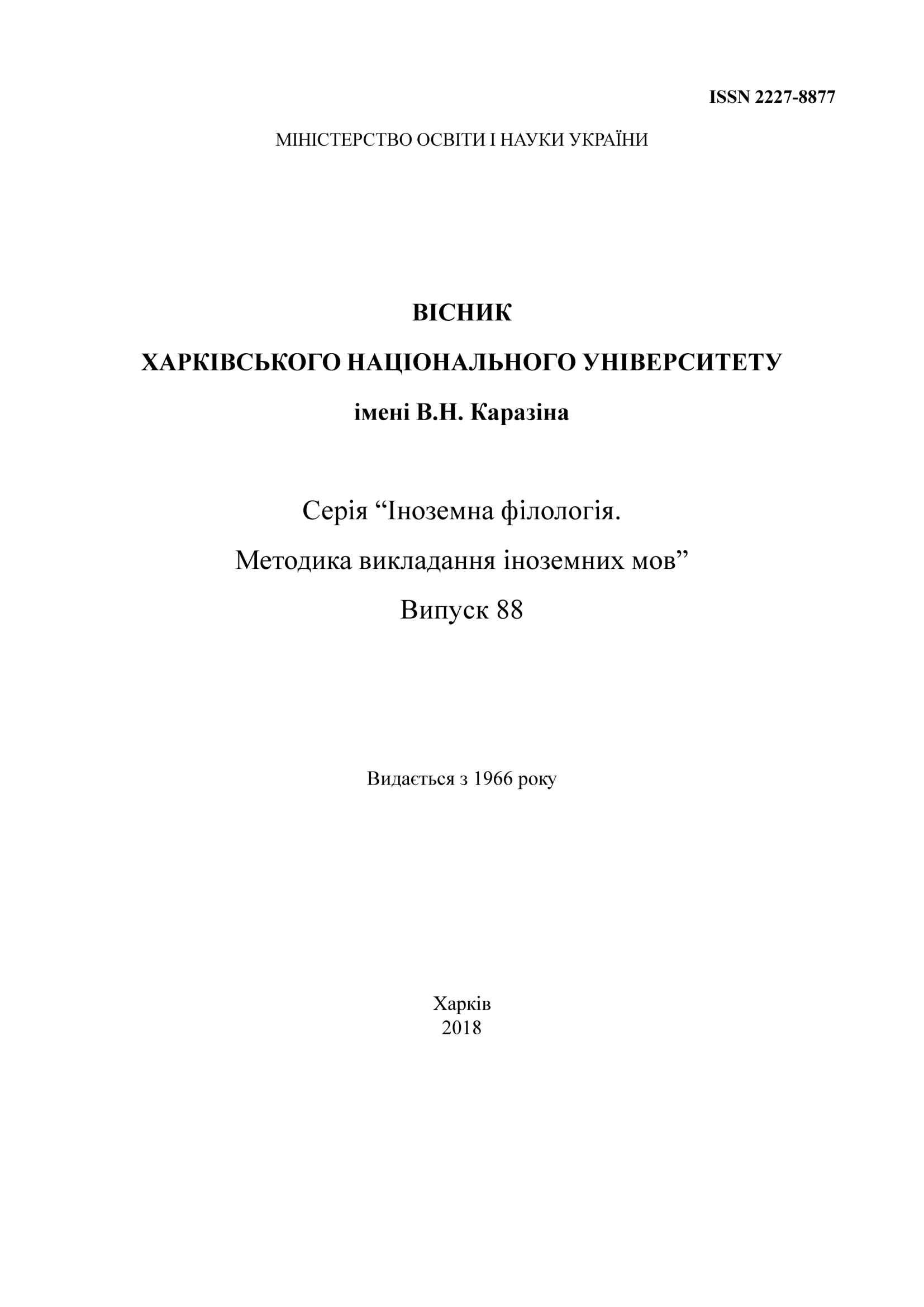Conceptosphere of Quotations from the British Literature in German: Ecolinguistic Approach (Based on Eptonyms by O. Wilde and G. B. Shaw)
Abstract
This article focuses on the specific features of loaned eptonyms in German within the framework of the translingual strain of ecolinguistic approach. Ecolinguistics provides for the consideration of the linguistic phenomena as a unity of their internal structure and natural, social, psychological and geopolitical factors. Eptonyms are units like word combination or sentence containing information of their authorship awared by the communicants and are subject to derivative processes typical for phraseological units. The phenomenon of adopting eptonyms results from the influence of cognitive, social and cultural factors of adapting new semiotic phenomena to the existing linguistic environment. The translingual strain of ecolinguistics explains using units, means and realities of a language and culture in the context and by means of another language which aims at efficiency of the cross-cultural communication. The paper aims at determining conceptual and translational factors which allow for the eptonyms by the most quoted English speaking writers O. Wilde and G. B. Shaw adaptation in the German-language environment and its entrenchment in the German eptonymic sphere of concepts. The study reveals that dramatic innovativeness of the British authors, their choice of topics brought to light initiated lange-skale staging of their dramas in Germany and Austria and hence their quoting in the recipient language. The paper features a model configuring concepts verbalized in eptonyms by O. Wilde and G. B. Shaw in the German language; it also covers their specifics which reveals the way foreign quotations acquire an adapted eptonymic form in the German language. At the core of the eptonymic sphere of concepts of O. Wilde and G. B. Shaw in the German language is the megaconcept HUMAN BEING dominating the hierarchy of subordinate concepts such as COGNITION, MORAL QUALITIES, SOCIETY common for the both writers. The both authors also spotlight untypical features of these concepts which can also be considered as a factor of eptonymization.
Downloads
References
Бернацкая А. А. О трех аспектах экологии языка. Вестник КрасГУ. 2003. № 4. С. 32–38. URL: http://www.russian.slavica.org/article433.html (Дата обращения: 25.08.2018).
Витгенштейн Л. Философские исследования. Новое в зарубежной лингвистике. Вып. XVI. М.: Прогресс, 1985. С. 79–128
Жеребило Т. В. Словарь лингвистических терминов. Изд. 5-е, испр-е и дополн. Назрань: Изд-во "Пилигрим". 2010. 486 с.
Курашкина Н. А. Истоки и пути развития эколингвистики. Научно-методический электронный журнал «Концепт». 2016. Т. 15. С. 246–250. URL: http://e-koncept.ru/2016/86950.htm (Дата обращения: 22.08.2018)
Оніщенко Н. А. ЛЮДИНА як базовий концепт, вербалізований ептонімами О.Вайлда в німецькій мові. Science and Education a New Dimension. Philology, VI(49), Issue: 166. Budapest: Society for Cultural and Scientific Progress in Central and Eastern Europe, 2018. С. 36–39. https://doi.org/10.31174/SEND-Ph2018-166VI49-08
Потеряхина И. H. Теоретические основы эколингвистических исследований. Университетские чтения. Пятигорск: ПГУ, 2013. Ч. 3. URL: http://pglu.ru/editions/un_reading/detail.php?SECTION_ID=394&ELEMENT_ID=5810 (Дата обращения: 25.08.2018).
Пылаева Е. М. Эколингвистика как новое направление в языкознании ХХI века. Вестник Пермского национального исследовательского политехнического университета. Проблемы языкознания и педагогики. 2011. № 5. С. 106–113.
Сердобинцева Е. Н. Законы общей экологии и язык. Экология русского языка: материалы 1-й Всероссийской научной конференции (Пенза, 15 февраля 2008 г.). Пенза: Издательство Пензенского государственного педагогического университета им. В.Г.Белинского, 2008. С. 8–13.
Сиротинина О. Б. Элитарная речевая культура. Хорошая речь. Саратов: Изд-во Саратов. ун-та, 2001. С. 222–228.
Суховерхов А. В. Современные тенденции в развитии эколингвистики. Язык и культура. 2014. № 3. С. 166–175.
Сущенко Е. А. Словарь-справочник лингвоэкологических терминов и понятий / Под ред. Л. Г. Татарниковой. СПб.: ИД «Петрополис», 2011. 424 c.
Arlaud S. Im Kreis der Wiener Moderne. Hermann Bahrs literarisches Englandbild. Stationen einer Aneignung. Hermann Bahr – für eine andere Moderne. Bern: Peter Lang, 2004. S. 45–175.
Bachleitner N. Beiträge zur Rezeption der britischen und irischen Literatur des 19. Jahrhunderts im deutschsprachigen Raum. Amsterdam: Rodopi, 2000. 534 S.
Cowley S. J. Distributed language. Distributed Language. Amsterdam: John Benjamins, 2011. P. 1–14.
Döring M., Penz H., Trampe W. ReRevisiting Alwin Fill. Language, Signs and Nature: Essays in Honour of Alwin Fill. Tübingen: Stauffenburg Verlag, 2008. P. 12.
Hagemann S. Einführung in das translationswissenschaftliche Arbeiten. Ein Lehr- und Übungsbuch. Berlin: Frank&Timme GmbH, 2016. 351 S.
Haugen E. I. The Ecology of Language: essays by Einar Haugen. Selected and Introduced by Anwar S. Dill. Stanford, California: Stanford University Press, 1972. P. 325–339
Halliday M. New Ways of Meaning: The Challenge to Applied Linguistics. The Ecolinguistic Reader. Language, ecology and environment.2001. P. 175–202.
Hodges B. H., Fowler C. A. New affordances for language: Distributed, dynamical, and dialogical resources. Ecological Psychology. 2010. Vol. 22. P. 239–254.
Holroyd M. Bernard Shaw: A Biography. London: Vintage, 1998. 834 p.
Koller W. Einführung in die Übersetzungswissenschaft. Tübingen und Basel: A Francke, 2011. 349 S.
Steffensen S. V., Fill A. Ecolinguistics: the state of the art and future horizons. Language Sciences. 2014. Vol. 41. P. 6–25.




